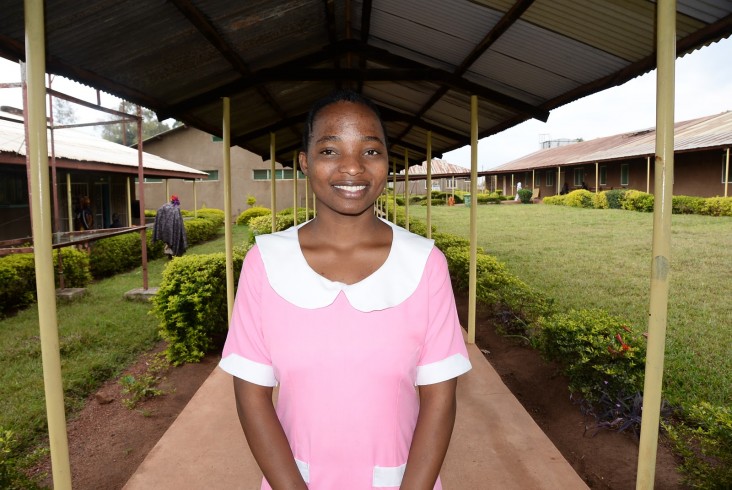Speeches Shim

In 2019, USAID supported quality improvement efforts in 10 nursing and midwifery schools in Tanzania, which led to an 80% average improvement among graduates on midwifery competencies.
Living in rural Tanzania, Modesta Morris had always wanted to be a nurse to help women have a healthy and positive pregnancy experience. “I have witnessed how women suffer during pregnancy,” Modesta explains. “I wanted to be part of those who save lives, especially during delivery.
While the child and maternal mortality rates have decreased in Tanzania over the last few decades, at 556 deaths per 100,000 live births, Tanzania’s maternal mortality ratio is more than twice the global average1. Additionally, Tanzania faces a shortage of skilled health workers, including nurses and midwives.
USAID is working to reduce maternal and child mortality in Tanzania by helping increase domestic health capacity to provide essential care to women and children. USAID supported the development of a pre-service training course for nurses and midwives in 10 health training institutes to provide them with high-quality reproductive, maternal, newborn, and child health education and competencies. This included the creation of new reproductive, maternal, and newborn health curricula and pre-service education packages. In addition, USAID created linkages between these training institutes and practicum sites to ensure that nursing and midwife students received hands-on, skills-based training to complement their classroom learning. Since the start of this program, more than 2,800 students have graduated from USAID-supported health training institutes in the Mara and Kagera regions of Tanzania.
Modesta was able to realize her dream of being a nurse after attending Murgwanza Nursing College and completing the USAID-supported training program, graduating with a nursing and midwifery diploma.
“The [nursing and midwifery] course has shaped me with skills to save lives,” says Modesta. “I will always devote my heart to saving women and children. I have learned a lot in practical sessions, this means I am capable of putting each lesson into reality.”
Supporting Nurses & Midwives Nationwide
The USAID-supported reproductive, maternal, and newborn health curricula and pre-service education packages are now being used nationwide. These will enhance clinical instructors’ ability to provide high-quality education to Tanzanian nurses and midwives, like Modesta, and increase Tanzania’s domestic health worker capacity. Quality, respectful health services delivered by confident, skilled nurses and midwives can go a long way to reducing preventable deaths of women and their children. By increasing the capacity of nurses and midwives in Tanzania, USAID is helping countries better address their own population’s needs, fostering self-reliance for health.
Download the PDF version of this story. [PDF, 1MB]

Comment
Make a general inquiry or suggest an improvement.